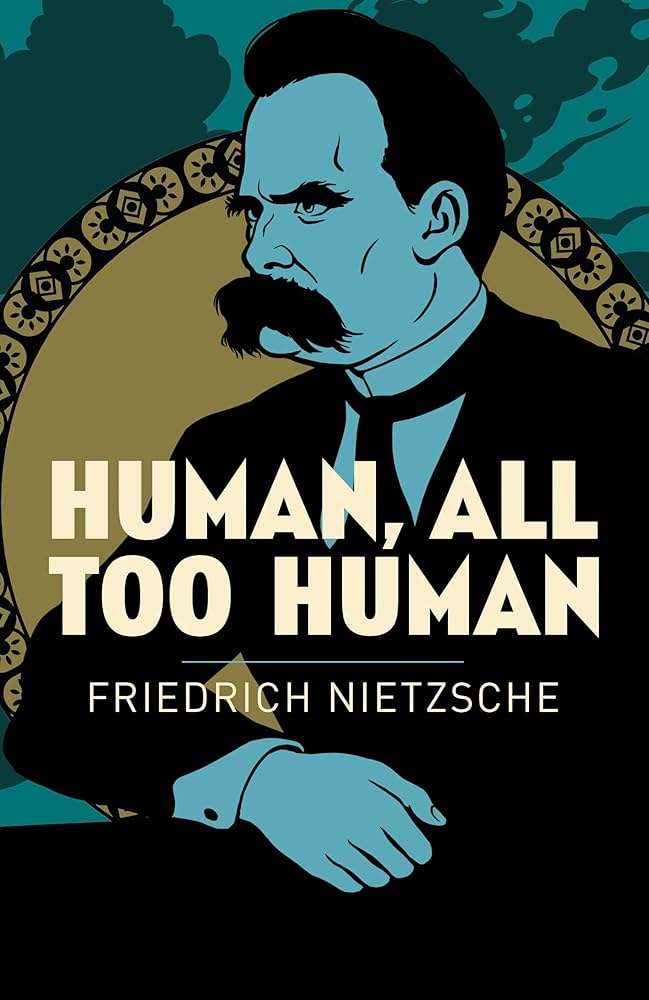

Human, All too Human
Friedrich Nietzsche
A collection of philosophical thoughts over the subjects of religion, culture, the state, and society. One of Nietzsche's earlier works most notably written during the beginning of his gastrointestinal problems which would plague him for the rest of his life. One of Nietzsche's more popular works, the aphorisms written within this text shape shape what becomes known as Nietzsche's philosophy.
My first introduction to Nietzsche was "The Gay Science," A book I bought purely for the title. I've continued to read his work over the years and find myself disagreeing with him more and more. All of his books are written as a series of aphorisms connected by a general theme, which makes reading his work very easy. Read one quote and move on to the next - reflect on what was read and form opinions: That is basically how I've read all of his books. This is one of his earlier works, and man does he have some terrible takes. "The mistakes of the greatest authors generally have their starting point in a wrong explanation of certain human actions and sensations (2.37)." Nietzsche presumes, as he does in his other works, that there is a higher culture man can strive for and this higher culture can be reached by discarding religion as the shackles of a dying culture, but also this higher culture is predicated on traditions built by previous generations. This contradiction has not been fully analyzed within this work, and it leads to several weird-ass claims. The most egregious tradition Nietzsche venerates is pedagogy: "The erotic relation of men to youths was the necessary and sole preparation... of all manly education (5.259)." In classic Nietzsche fashion, he somehow manages to make the claim even worse with a splash of misogyny: "The higher the light in which this relation [between man and youth] was regarded, the lower sank intercourse with women... The women had no other mission than to produce beautiful, strong bodies... (ibid.)." Women exist only for the use of reproduction and any state of higher culture is a patriarchical society.
This is, at its core, the absurdity of Nietzschean cultural philosophy: He has a materialist understanding of the world to a point, which is completely abandoned the moment religion has been dismissed. I am about to read a book which blends Marx with Nietzsche, and I don't understand how it is going to work out. Nietzsche saw socialism as decadent: "The socialists demand a comfortable life for the greatest possible number. If the lasting house of this life is comfort, the perfect state, had really been attained, then this life of comfort would have destroyed the ground out of which grow the greatest intellect... Were this state reached, mankind would have grown too weary to be still capable of producing genius (5.235)." Nietzsche also saw the state as "necessary and wise (ibid.)," which completely goes against everything Marx and Engels wrote. Also, elephant in the room, his philosophy directly influenced the ideology of the nazis. Maybe I accidentally bought a nazbol book that is inevitably going to make a nonsensical argument, I don't know.
All that being said, I'll be damned if Nietzsche doesn't have some banger quotes. Some favorites: